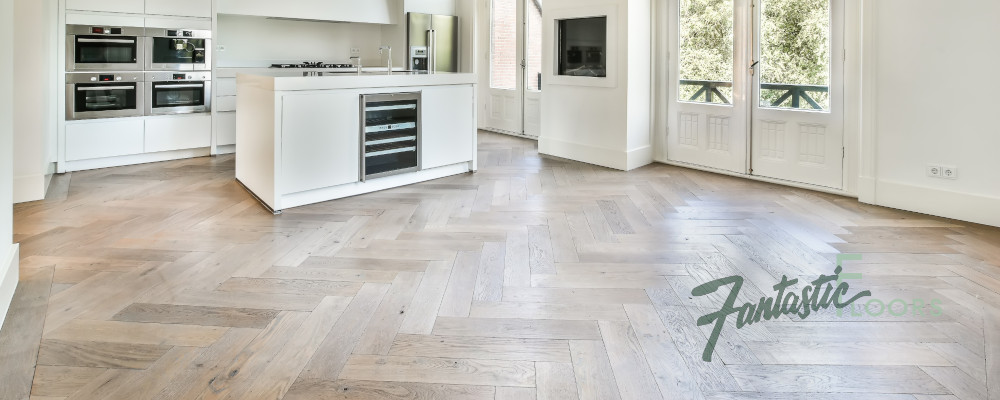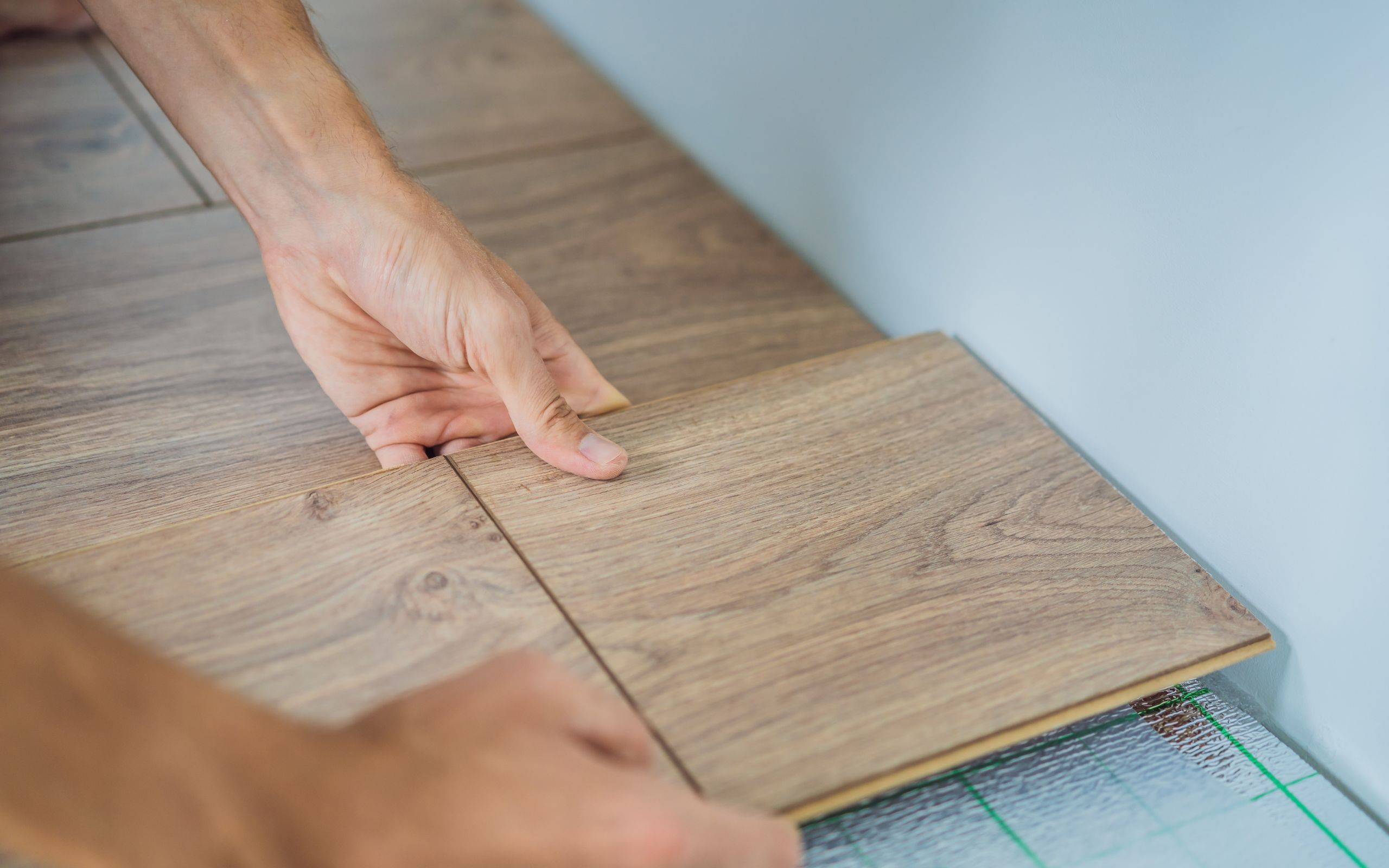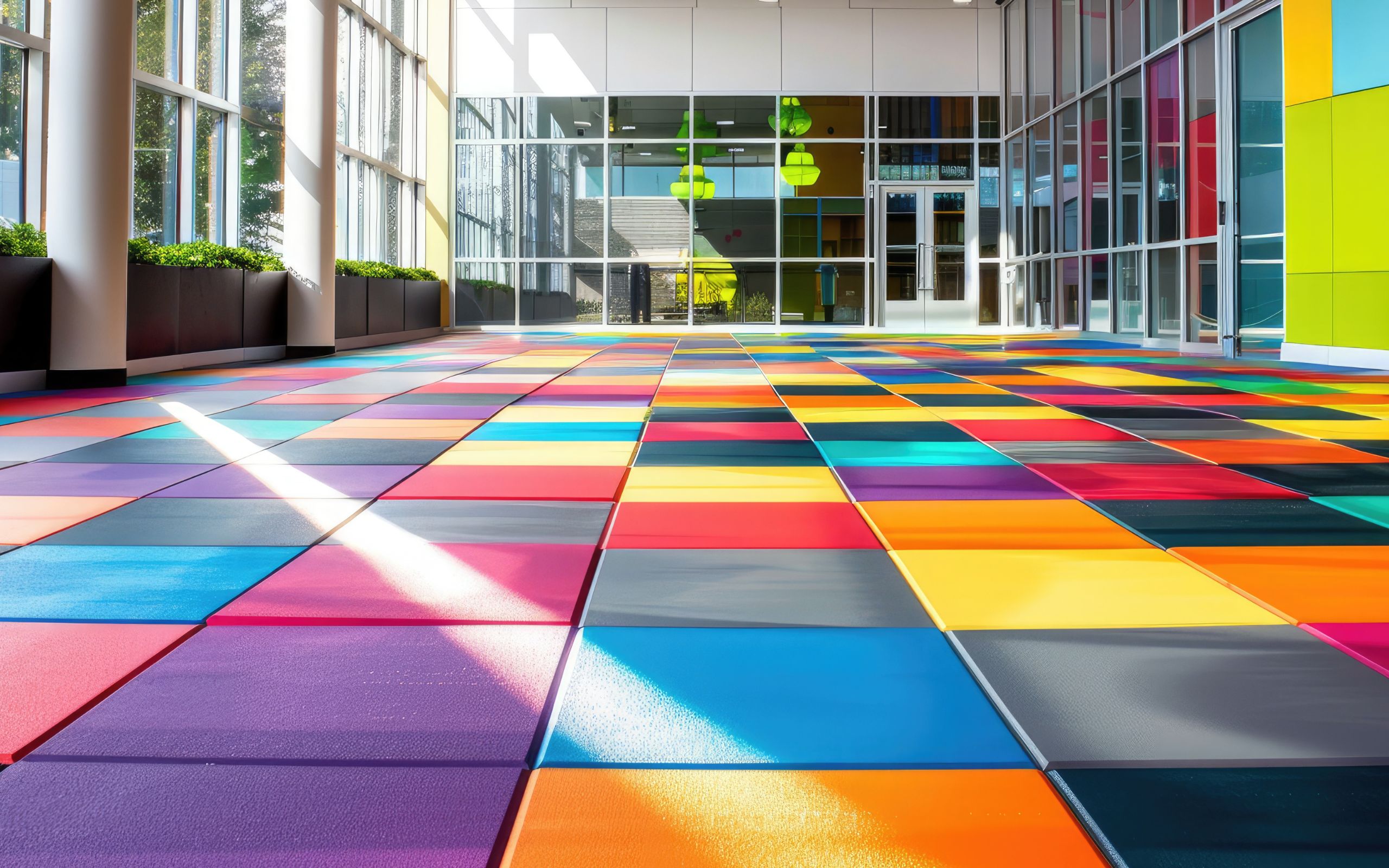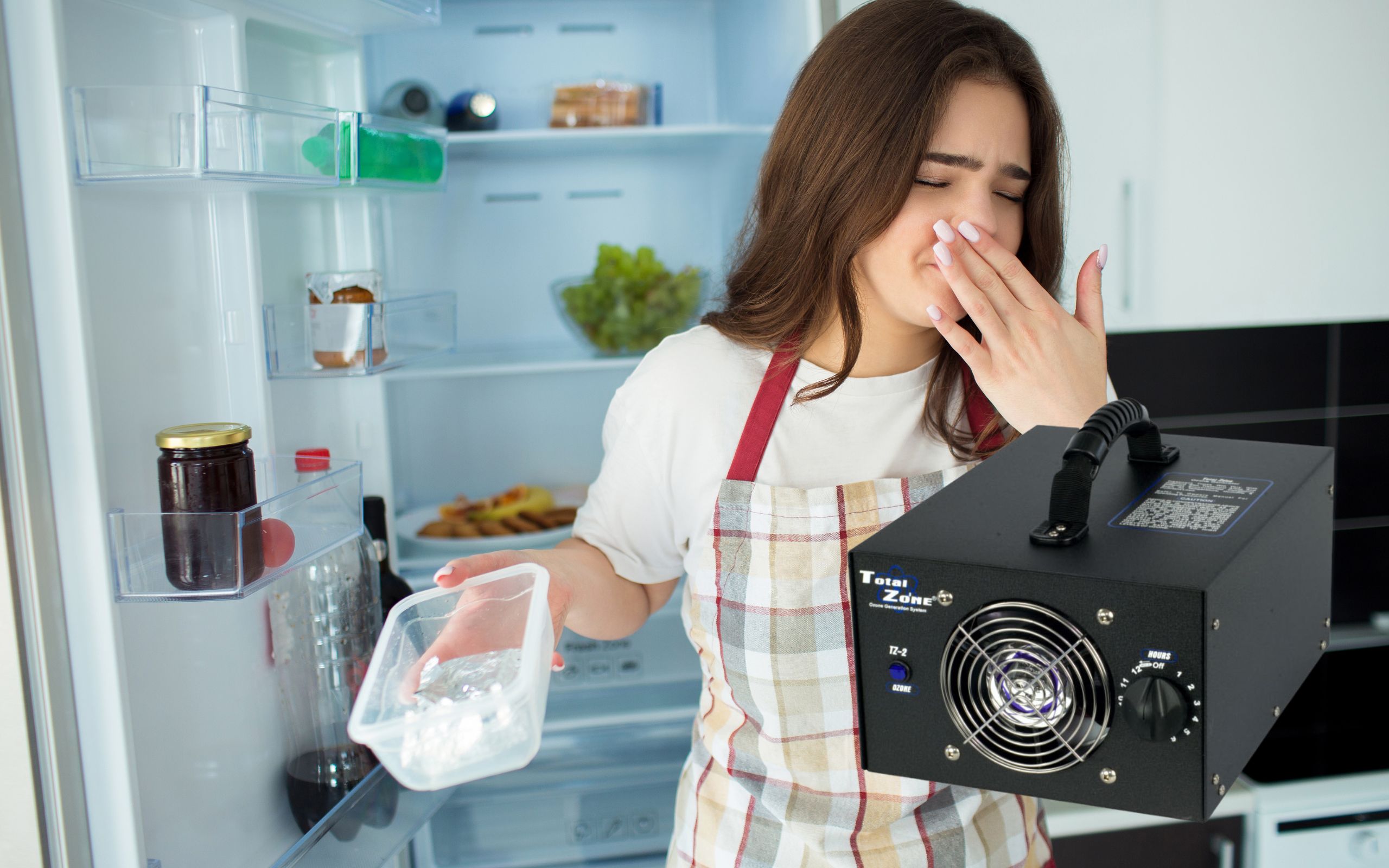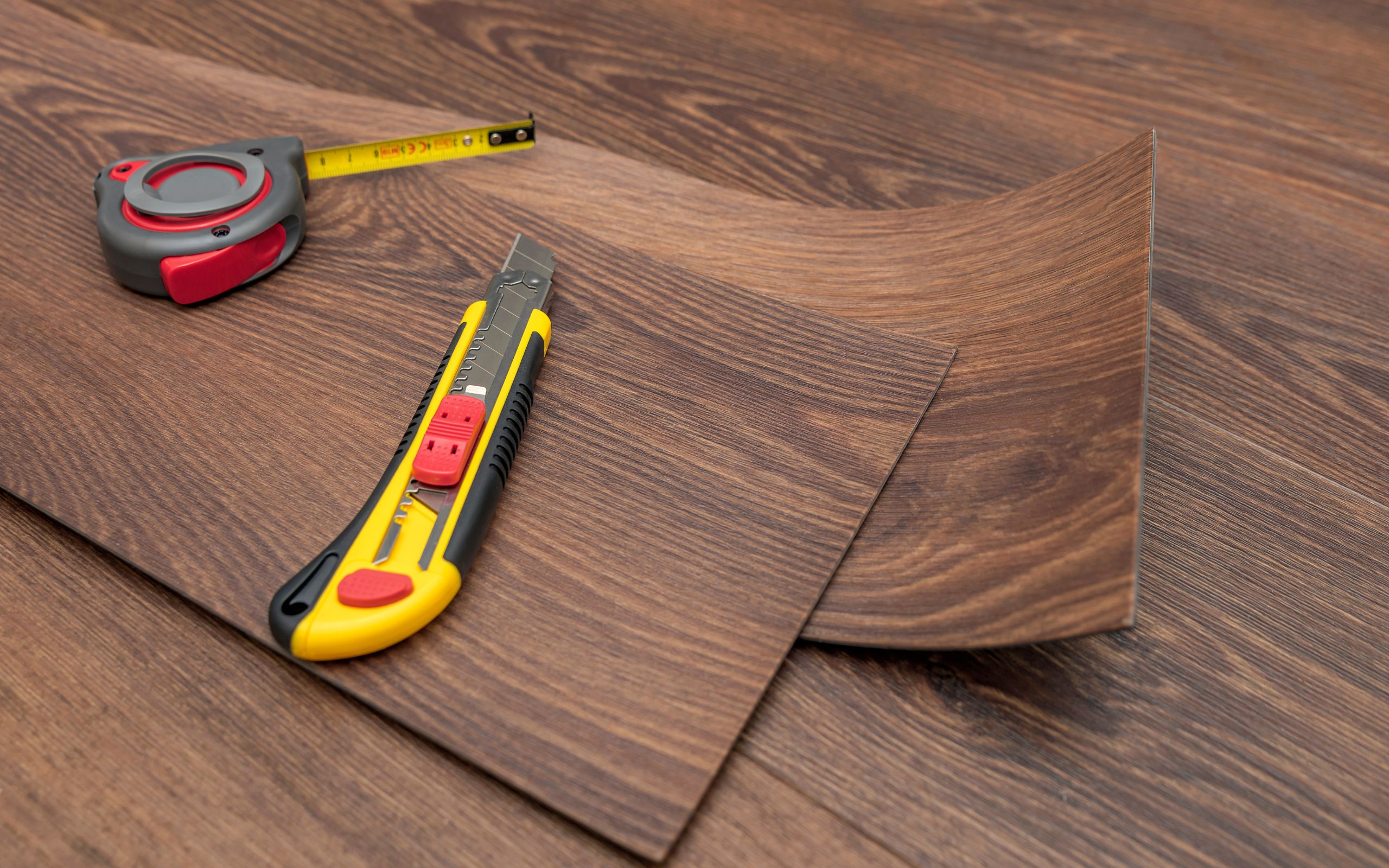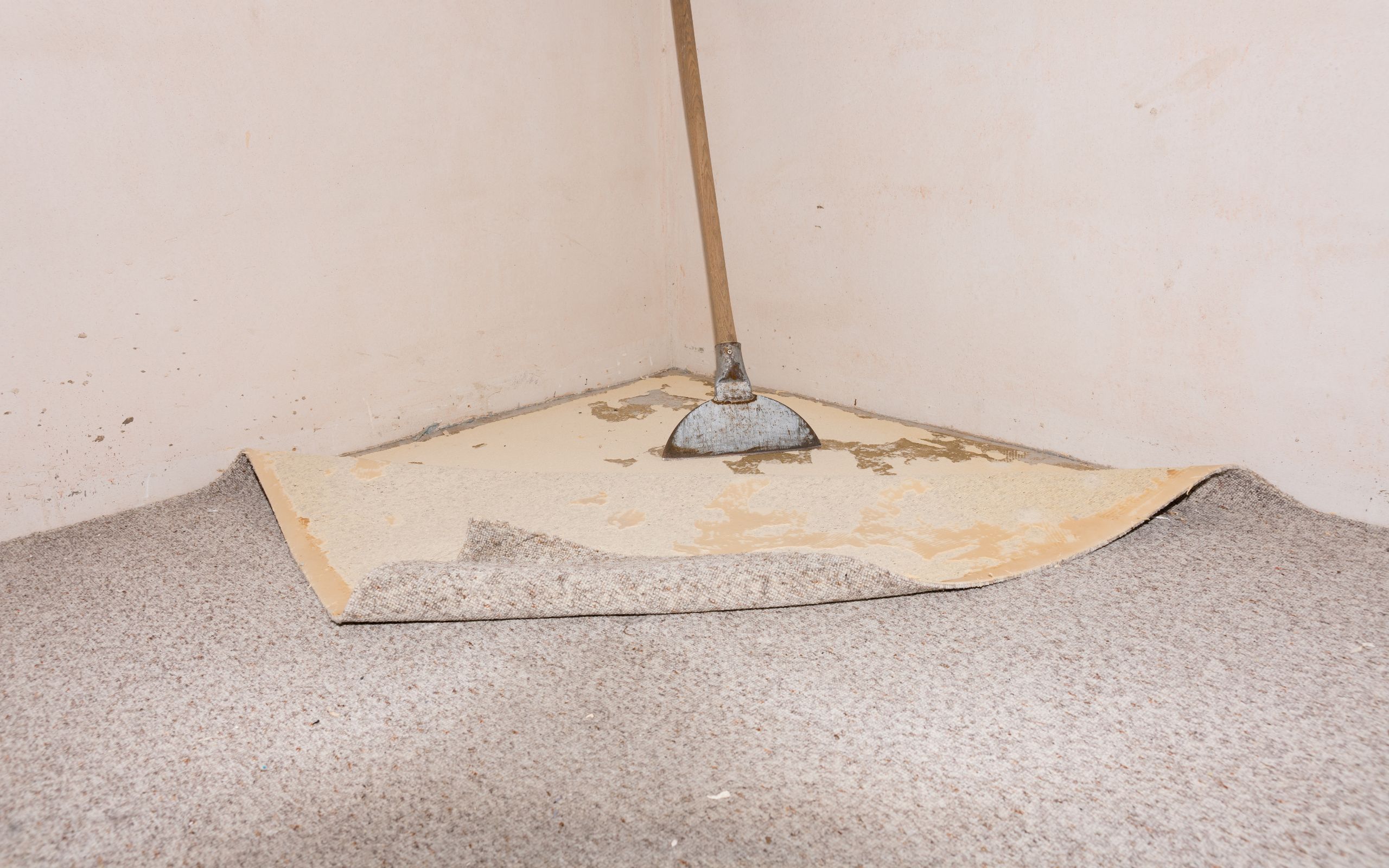Flooring Companies in Houston
Don’t feel you have to play by the rules when choosing flooring.
Sure, wood planks seem ideal for living spaces where you want the look and feel of warmth underfoot. And porcelain tiles are a natural for a moisture-prone bathroom or laundry room floor. But new design and technology developments have led to changes in flooring types you may have avoided in the past. That opens up room for more choices and creativity.
Changes Afoot
As an example, today’s engineered wood, which is less costly than solid-wood planks, can be a great option for living rooms and bedrooms. Vinyl flooring now incorporates realistic images of reclaimed barnwood, stylish enough for a den. New porcelain tiles easily pass for Calacatta marble in a luxe powder room while others, with the texture and look of wood planks, work beautifully in designer kitchens.
Unlike the faux flooring of the past, today’s products also eliminate pattern repetition and incorporate texture for a double dose of realism.
We’ve analyzed key areas in a typical home and chosen the top two flooring materials to meet the challenges in each. Follow our suggestions and you’ll have floors that will continue looking great for the long haul and hold their own against assaults from foot traffic, sunlight, moisture, and even bleach.
Kitchen & Mudroom
The Challenge
Grit-covered shoes grind in dirt, raincoats drip, chairs are dragged back and forth, and heavy cans crash from the countertop to the floor. Simply put, kitchens and mudrooms require the hardest-working floors in your home.
Though wood remains a widely used aesthetic choice, it won’t stand up well to that assault. Our tests show that in general, wood floors are far more prone to denting than other materials, and with very few exceptions, foot traffic is tough on the finish.
Top Choice: Porcelain Tile
A natural fit for high-traffic areas of the home, porcelain tile outperformed every other flooring material we tested for resistance to scratching, and it resisted dents from light objects like falling utensils very well, says Rico de Paz, the CR engineer responsible for rating flooring. Porcelain tile comes in a range of styles to fit any décor. You can get small-format hex tiles for a traditional early-20th-century house, for example, or 4-foot faux reclaimed-ash planks that, when laid tightly together with a matching grout, will convincingly create the look of wood. Tile is also low-maintenance, requiring nothing more than vacuuming and mopping to stay clean, and it’ll last a lifetime.
Runner-Up: Vinyl
Sheet vinyl floors became popular with homeowners in the 1950s (sometimes with layer upon layer put down as tastes changed) for several good reasons. First, it’s an affordable way to cover an expansive space. Of the products we tested, vinyl planks and tiles came in at $3.42 per square foot, on average, cheaper per square foot than porcelain tile and second in affordability only to laminates, at $2.82 per square foot. Vinyl planks and tiles are also among the easiest types of flooring to install yourself.
Today’s vinyl products are also more durable than those of the past, but some may be prone to scratching. Keep felt bumpers on the feet of kitchen stools, and buy an extra bundle of planks now to ensure that you have a perfect match down the road. If any planks get damaged, you can remove them and install replacements as needed.
Bathroom & Laundry Room
The Challenge
These floors don’t face the stress of heavy foot traffic or the constant sunlight that plagues other spaces. Rather, the flooring threats in these rooms come in liquid form. Bathers splash, showerers drip, and toilets overflow.
Top Choice: Porcelain Tile
Even purists who refuse anything but real wood should seriously consider porcelain tile for their bathrooms and laundry room. Porcelain also allows for design-forward, barrier-free showers, where the bathroom floor extends straight into the shower without any curb. To avoid slippery-when-wet floors, choose a more textured product rather than one with a highly polished surface.
Runner-Up: Vinyl
Once again, for a less expensive (though less durable) type of flooring that’s an alternative to porcelain tile, turn to vinyl, which will cost 26 cents per square foot less than tile, based on the materials we tested.
All the vinyl tiles and planks we tested received an Excellent rating in our test for resistance to water spills and flooding. Luxury vinyl tiles, which tend to imitate stone, and luxury vinyl planks, which mimic wood, will deliver the most realistic look. They can even be laid in the pattern of your choice, just like the real thing.
Dining, Living & Family Rooms
The Challenge
Though it’s true that furniture, pet claws, stiletto heels, and toys with wheels can damage a wood floor, any other material can feel substandard in these cozy common areas.
Top Choice: Solid Wood
By this we mean prefinished wood flooring, such as the 11 products we tested (six of which earned Very Good or Good scores overall) as well as unfinished wood flooring, which gets sanded and finished on site. (CR doesn’t test unfinished floors because much of what we analyze is related to the finish.)
There are plenty of reasons to opt for prefinished planks. You won’t have dust from sanding or fumes from finishing to contend with during installation, and depending on how it’s installed, you might be able to walk on the floors right away. Prefinished flooring also tends to be less expensive. Perhaps most important, the factory-applied finishes are significantly tougher-wearing than what your contractor would be likely to apply once the floor is installed.
Runner-Up: Engineered Wood
Though it resembles the look of solid wood, engineered wood flooring has just a thin veneer of finished wood, such as oak or maple, attached to a plywoodlike substrate. Engineered wood provides several significant advantages over solid wood. The varieties we tested cost $4.52 per square foot, on average; prefinished solid wood in our tests averages $5.47 per square foot. And with an engineered product, you may be able to afford an exotic wood species, such as Brazilian walnut or tigerwood, both of which tend to be more scratch- and dent-resistant than oak or maple.
Engineered wood floors are also less susceptible to seasonal shrinking and swelling because the underlying support structure is designed to be more stable than solid wood. Some can even be installed directly over a concrete subfloor, which isn’t always possible with solid wood. In fact, engineered flooring is often low-profile enough to install over an existing floor, representing huge potential savings. Still, this choice lacks the longevity of solid wood, particularly for the (very) long haul. In certain household environments, a wood floor might need refinishing every decade or two. Some engineered products can be refinished just once (depending on the thickness of the top “wear” layer), whereas solid wood can be refinished four or five times.
Enclosed Porch or Sunroom
The Challenge
Depending on how exposed your porch is, the floor might be exposed to intense sunlight and rain. And you might have to contend with a concrete subfloor (which limits your options because you can’t nail planks directly to it), recreational-equipment storage, and even freeze-thaw cycles if the floor is installed in a three-season room.
Top Choice: Porcelain Tile
This durable material will stand up to most of the abuse it gets in these rooms. In addition to faux wood and stone, porcelain tiles can be designed to look like handmade ceramic tiles, a welcoming choice for these casual hangouts. If your porch isn’t fully heated and protected from the elements, make sure to choose a tile that’s rated for outdoor use in your climate.
Runner-Up: Engineered Wood and Vinyl
If you’d rather pass on cold-to-the-touch tile—and your porch is weatherproofed and heated—engineered wood offers a warm, this-room-is-not-an-afterthought look. Engineered wood flooring can also usually be installed over a concrete subfloor. But for a porch that’s exposed to weather, you’d do better with an exterior decking product, such as a tropical hardwood, composite, cedar, or pressure-treated pine.
Be sure to look at the manufacturer’s installation specifications before buying an engineered wood for such a space, de Paz says. “They may suggest adding a vapor barrier or some kind of underlayment when installing over a concrete floor,” he says.
Basement
The Challenge
It doesn’t matter whether you’re refinishing this subterranean space as a rec room, a playroom, an in-law suite, a wine cellar, or a man cave: The biggest threat to a basement floor isn’t from above; it’s from below. A concrete floor—especially one that’s below grade—might be damp constantly. And if the area floods, any porous material can absorb the water, expand, and buckle, Mackmiller says.
First things first: Make sure to choose a flooring that’s rated for installation over below-grade concrete. And read the manufacturer’s instructions carefully, Mackmiller says. In a basement, the surface needs to be installed as a “floating floor,” that is, one that attaches only to itself and not to the subfloor below. This way the entire surface can shift as moisture and temperature levels change without pieces of the flooring buckling or coming loose.
Top Choice: Vinyl
Every vinyl product we tested earned Excellent scores in both our wet-sponge and water-submergence tests, so all are completely waterproof. “That makes vinyl the best choice for basements that can be subject to persistent moisture, ranging from dampness wicking through the subfloor to pooling from storms or plumbing failures,” de Paz says.
Both vinyl and porcelain, which don’t contain wood fibers, stand up to the worst of these conditions. But porcelain tile tends to feel uncomfortably cold underfoot, especially in basements where the chilly ground underneath makes heating it with an electric floor-warming system extremely inefficient (not to mention expensive). That makes vinyl the clear winner when it comes to basements. It also offers a wide range of formal and informal looks to fit whatever vibe you’re creating.
Runner-Up: Laminate
Dense fiberboard topped with an image sealed under clear plastic, laminate is another affordable choice. (Of the flooring we tested, it’s the least expensive, costing 60 cents less per square foot than vinyl, on average. Our top-rated vinyl model, Congoleum’s DuraCeramic Sierra Slate, comes in at $5 per square foot.) It’s also easy to install yourself. Use it in basements that have no leaks or persistent moisture on the walls or floor. For the most convincing look of real wood, choose a product with wide planks that simulate individual floorboards. Placing the flooring over sound-dampening foam underlayment will reduce the hollow sound it can make underfoot.
📞 713-939-4422 | 📍600 Kenrick Dr. Suite C-20, Houston, TX 77060
Source: consumerreports

About Fantastic Floors, Inc. We are a successful company with more than 25 years of experience in the market. We have the infrastructure, high quality equipment, materials and supplies to achieve and exceed the expectations of our customers, allowing us to gain the confidence and loyalty for our services. We have more than 500 residential, 300 properties and 25 commercial customers totally satisfied with our services.
Flooring Companies in Houston
Fantastic Floors, Best Carpet Installers in Houston, Best Floor Installers in Houston, A/C Duct Cleaning in Houston, Best Carpet Cleaning in Houston, Best Carpet Installation in Houston, Best Carpet Shampoo in Houston, Best Floor Installation in Houston, Carpet Cleaning Companies in Houston, Carpet Cleaning in Houston, Carpet Installation in Houston, Laminate Installation in Houston, Carpet Sale in Houston, Ceramic Tile Sale in Houston, Commercial Carpet in Houston, Commercial Flooring in Houston, Emergency Water Damage in Houston, Floor Installation in Houston, Flooring in Houston, Flooring Companies in Houston, Hardwood Floor Installation in Houston, Professional Carpet Installation in Houston, Professional Floor Installation in Houston, Tile and Grout Cleaning in Houston
